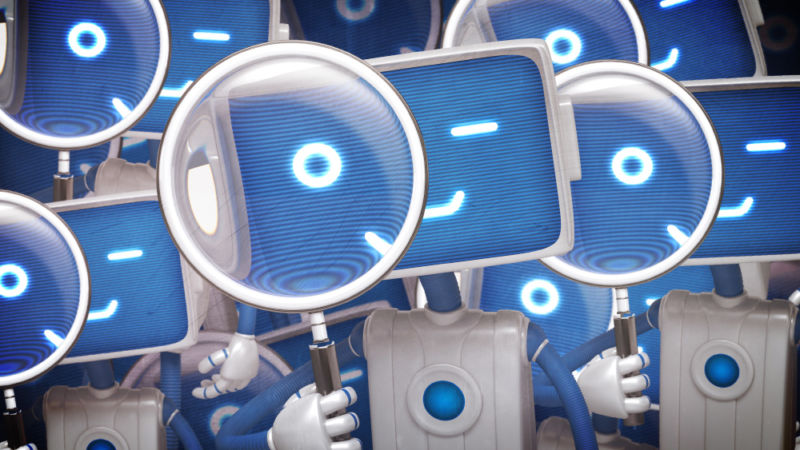
Aurich / Getty
The primary wave of main generative AI instruments largely had been skilled on “publicly obtainable” knowledge—principally, something and every part that might be scraped from the Web. Now, sources of coaching knowledge are more and more proscribing entry and pushing for licensing agreements. With the hunt for extra knowledge sources intensifying, new licensing startups have emerged to maintain the supply materials flowing.
The Dataset Suppliers Alliance, a commerce group fashioned this summer season, needs to make the AI business extra standardized and honest. To that finish, it has simply launched a place paper outlining its stances on main AI-related points. The alliance is made up of seven AI licensing corporations, together with music copyright-management agency Rightsify, Japanese stock-photo market Pixta, and generative-AI copyright-licensing startup Calliope Networks. (A minimum of 5 new members might be introduced within the fall.)

The DPA advocates for an opt-in system, that means that knowledge can be utilized solely after consent is explicitly given by creators and rights holders. This represents a major departure from the best way most main AI corporations function. Some have developed their very own opt-out programs, which put the burden on knowledge house owners to tug their work on a case-by-case foundation. Others provide no opt-outs by any means.
The DPA, which expects members to stick to its opt-in rule, sees that route because the much more moral one. “Artists and creators needs to be on board,” says Alex Bestall, CEO of Rightsify and the music-data-licensing firm World Copyright Trade, who spearheaded the trouble. Bestall sees opt-in as a realistic method in addition to an ethical one: “Promoting publicly obtainable datasets is one option to get sued and haven’t any credibility.”
Ed Newton-Rex, a former AI govt who now runs the moral AI nonprofit Pretty Skilled, calls opt-outs “essentially unfair to creators,” including that some could not even know when opt-outs are supplied. “It is notably good to see the DPA calling for opt-ins,” he says.
Shayne Longpre, the lead on the Knowledge Provenance Initiative, a volunteer collective that audits AI datasets, sees the DPA’s efforts to supply knowledge ethically as admirable, though he suspects the opt-in normal might be a troublesome promote, due to the sheer quantity of knowledge most modern-day AI fashions require. “Beneath this regime, you’re both going to be data-starved otherwise you’re going to pay rather a lot,” he says. “It might be that just a few gamers, giant tech corporations, can afford to license all that knowledge.”
Within the paper, the DPA comes out in opposition to government-mandated licensing, arguing as an alternative for a “free market” method through which knowledge originators and AI corporations negotiate straight. Different pointers are extra granular. For instance, the alliance suggests 5 potential compensation constructions to ensure creators and rights holders are paid appropriately for his or her knowledge. These embody a subscription-based mannequin, “usage-based licensing” (through which charges are paid per use), and “outcome-based” licensing, through which royalties are tied to revenue. “These may work for something from music to pictures to movie and TV or books,” Bestall says.
“Trying to standardize compensation constructions is doubtlessly a great factor,” says Invoice Rosenblatt, a technologist who research copyright. “The Dataset Suppliers Alliance is in an excellent place to place phrases on the market.” As Rosenblatt sees it, AI corporations want incentives to undertake licensing. Whereas the authorized causes (worry of lawsuits, regulation mandating licenses) are essentially the most clearly compelling, Rosenblatt says it’s additionally essential for would-be licensors to make the method as straightforward and handy as doable. Standardizing cost fashions, he argues, helps easy the street for mainstream adoption.
The DPA additionally endorses some makes use of of artificial knowledge—that which is generated by AI—arguing that it’ll “represent the bulk” of coaching knowledge within the close to future. “Some copyright holders most likely received’t prefer it,” Bestall says. “But it surely’s inevitable.” The alliance advocates for “correct licensing” of the pre-training info used to create artificial knowledge and transparency on how the latter is made. It additionally calls for normal “analysis” of the artificial knowledge fashions to “mitigate biases and moral points.”
After all, the DPA must get the business’s energy gamers on board, which is less complicated stated than executed. “There are requirements rising for the right way to license knowledge ethically,” Newton-Rex says. “However not sufficient AI corporations are adopting them.”
Nonetheless, the very existence of the DPA demonstrates that the AI Wild West days look like coming to an finish. “All the things is altering so quick,” Bestall says.
This story initially appeared on wired.com.